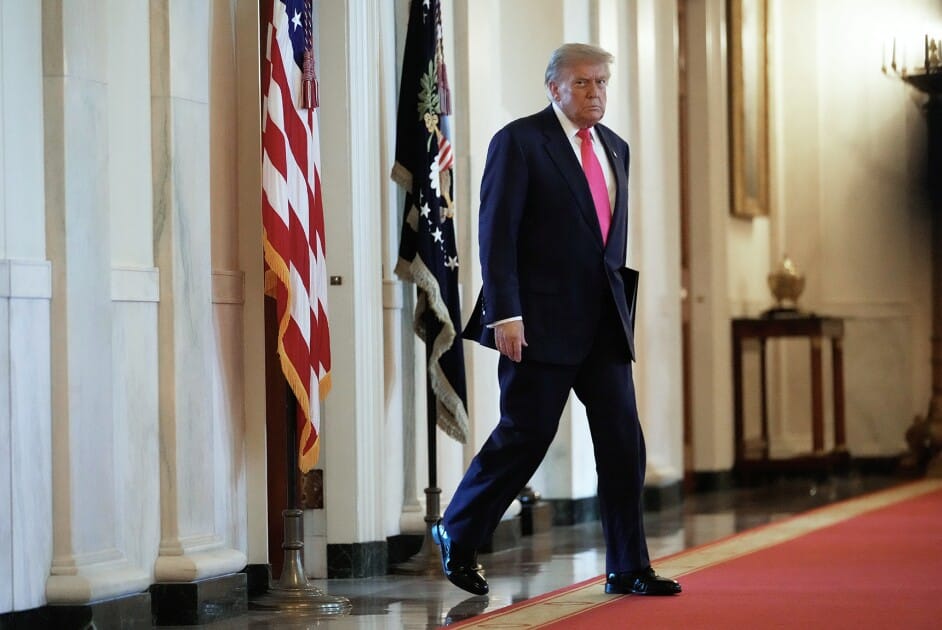The Trump administration is holding back nearly $6.8 billion in federal funding for K-12 schools it was scheduled to dole out July 1, Education Department staff told state education agencies on Monday afternoon—the day before the funding, by law, was required to start flowing.
Thousands of school districts and dozens of states that had banked on those funds to cover staff salaries, vendor contracts, curriculum materials, technology tools, and other priorities will now have to consider slashing student services—including some mandated by federal law—or tapping other funding sources if the federal money doesn’t show up on time or at all.
Each year on July 1, by law, states receive the bulk of the federal education money Congress allocated for the upcoming K-12 school year. This year’s allocations were supposed to roughly mirror last year’s, after Congress passed a continuing resolution in March that extended the previous year’s funding levels government-wide.
But in an unsigned email message sent after 2 p.m. Monday reviewed by Education Week, the Education Department informed states that the agency won’t be sending states any money tomorrow from the following programs:
- Title I-C for migrant education ($375 million)
- Title II-A for professional development ($2.2 billion)
- Title III-A for English-learner services ($890 million)
- Title IV-A for academic enrichment ($1.3 billion)
- Title IV-B for before- and after-school programs ($1.4 billion)
“Decisions have not been made concerning submissions and awards for this upcoming academic year,” the email reads. “Accordingly, the Department will not be issuing Grant Award Notifications obligating funds for these programs on July 1 prior to completing that review.”
The White House last month proposed a 2026 federal budget that would eliminate all five of those education funding streams, but Congress has not yet acted on that proposal. In effect, today’s move reflects the Trump administration advancing its budget priorities a year early, before Congress has considered them.
In a separate email sent at 4:27 p.m., the department told congressional staffers that it’s holding back funds from all the programs listed above, as well as grants for adult basic and literacy education ($729 million nationwide). Questions about the changes, the letter says, must go to the Office of Management and Budget, not the Education Department.
“The department is currently referring all questions from the hill, states, and stakeholders related to these programs to our OMB colleagues,” wrote Brandy Brown, deputy assistant secretary of K-12 education in the Education Department’s office of legislation and congressional affairs.
As with its fiscal 2026 budget proposal, the Trump administration’s moves to withhold the nearly $6.8 billion appear to have spared the two largest Education Department funding streams for K-12 schools: Title I-A for low-income students ($18.4 billion) and the Individuals with Disabilities Education Act ($15.6 billion).
Still, states need the funding to flow on schedule, said Carissa Moffat Miller, CEO of the Council of Chief State School Officers, in a statement.
“Schools need these funds to hire key staff and educate students this summer and in the upcoming school year,” Miller wrote.
The Education Department on Monday afternoon referred questions from Education Week to the federal Office of Management and Budget, which didn’t immediately respond to requests for comment.
Speculation mounted in recent weeks that funding would be disrupted
The news that the funds wouldn’t go out July 1 comes after weeks of mounting speculation and hints from top officials that the Trump administration would hold back, or “impound,” funding from programs the president doesn’t support.
State leaders and advocacy organizations sounded the alarm in letters to the Education Department and Congress in recent weeks after routine federal dispatches with funding allocations for Titles I-C, II-A, III-A, and IV-B never showed up. Those four programs alone make up more than 10% of federal spending on K-12 schools in 33 states, according to the Learning Policy Institute.
Lawsuits are likely to follow, as they have for similar funding changes the administration implemented earlier this year.
Federal law prohibits the executive branch from withholding congressionally appropriated funds unless it gives federal lawmakers an opportunity to approve or reject the move within 45 days.
The U.S. Constitution gives Congress, not the president, the power of the purse—but top administration official Russell Vought, whom Trump appointed to lead the Office of Management and Budget, has said he believes restrictions on impoundment are unconstitutional. On Capitol Hill last week, Vought said the administration hadn’t decided whether to ask Congress for permission to impound education funding.
The administration so far this year has already withheld billions of federal dollars for education and other priorities across the government. Only a fraction of those cuts—and virtually none that affected K-12 education—were included in the administration’s first rescissions proposal, which Congress has until July 18 to consider.
2025-06-30 22:30:26
Source link

